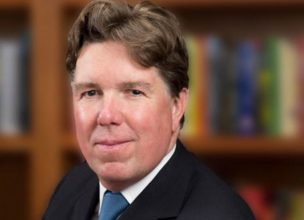The author is a fellow at the Mossavar-Rahmani Center for Business & Government at Harvard Kennedy School. He is also a former central banker with over 30 years of experience and the author of “Unelected Power” (2018) and “Global Discord” (2022)—soon to be released in a paperback copy.
Stories have been swirling that people around Donald Trump, perhaps including the former president himself, plan to curtail or even end the Federal Reserve’s independence if he regains the White House. The stakes are high for the country’s deepest values, its prosperity, and even for national security and America’s position in the world.
A fundamental principle of the separation of powers is that an elected assembly should decide taxes. By that standard, the last person who should control the monetary levers is the president (and his or her outriders). The printing press is always latently an instrument of taxation because it can unleash surprise inflation. Control of it would enable any president, right or left, to bypass Congress to pursue their pet projects.
Deep principles aside, there are plenty of prosaic reasons not to bring the Fed closer to the political fray. The U.S. government is heavily indebted, and the country as a whole is a large net debtor to the rest of the world. If monetary policy’s credibility were to take a hit, the cost of servicing those debts would rise because investors would charge an inflation-risk premium. It is estimated that when, in 1997, Britain’s Bank of England was made independent, the inflation risk premium embedded in U.K. government bonds fell by 25 basis points, a whopping 10% of the then natural real rate of interest of roughly 2.5%. Such savings from credible monetary policy are available to governments of all shades of opinion, to use on lower taxes or higher spending according to their ideology. Conversely, compromising Fed independence could herald higher taxes, which might be perverse for Republicans.
Worse, markets would price into bond yields a higher expected rate of inflation. The president would then face a highly unwelcome choice: let inflation rise in line with those higher expectations, or engineer a recession to invalidate them. It is worth remembering that institutionalized constraints such as central bank independence, however frustrating, substitute for potentially more violent market disciplines. The U.K. offers a striking case study of that from the fall of 2022, when various checks were turned off and bond markets went haywire.
Some will argue that there is an alternative to solving these problems via central bank technocracy: returning to the gold standard. But we should also remember that, after the introduction of full-franchise democracy in the early 20th century, gold’s discipline proved politically unviable given the violent swings it entailed for real activity and jobs.
Of course, a central bank can be brought to heel in less obvious ways than formally repealing or diluting its independence. As has long been said, personnel is policy. In other words, an administration can undo independence by appointing an ally. Make that too obvious, however—and there have been such attempts—and the ruse is liable to backfire, exposed before Senate confirmation, or even nomination.
The most effective strategy, perhaps, is to appoint someone who looks like the real thing but is not. In central banking, the most notable case is Arthur Burns, Fed chair from 1970 to 1978, and a highly credentialed economist, who, in the run up to the 1972 election, is recorded by the White House tapes as saying, “Time is getting short. We want to get this economy going.” Yes, that is the Fed chair, not President Nixon. Of course, the result was runaway inflation. A decade and a half later, Paul Volcker—the real thing if ever there was one—walked out of a White House meeting at which Ronald Reagan and his chief of staff, Jim Baker, pressured him to relax his uncompromising efforts to tame inflation. Both Republicans and Democrats look back on that defiant independence as helping set the stage for America’s surge in prosperity from the late-1980s.
But the stakes are, may the gods help us, even higher than that. The dollar’s status as the world’s premier reserve currency is not merely a matter of prestige. By reducing U.S. borrowing costs, it makes it cheaper for America to act as a security hegemon. By reducing financing costs for U.S.-domiciled banks and real-economy businesses, it promotes U.S. commercial interests around the world. And by ensuring a vast proportion of world trade is denominated and paid for in dollars, it gives the U.S. authorities a window on who is doing what as well as enhancing the potency of sanctions.
The first of those is, when push comes to shove, the most important. If U.S. monetary policy were thought to be politicized, even friends and allies would reduce their commitment to the dollar. This would suit no one better than Beijing. As I said in my 2022 book Global Discord, the Federal Reserve building in Washington, D.C. is an unknowing headquarters for U.S. world leadership. Given the enormous challenges presented by the new geopolitics, Federal Reserve independence is nothing short of a national security issue. Whatever one thinks of MAGA, citizens of the free world can surely unite in saying, please don’t make America smaller again.
Notwithstanding its mistakes over the past decade, a Federal Reserve focused steadfastly on its core mission needs to stay independent for all those reasons.
Reprint of an article featured today in Barron's.


